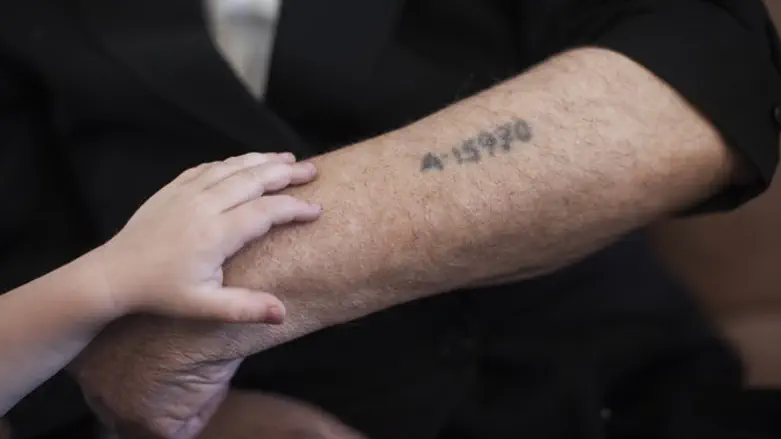
A new book is shedding light on a handful of US government officials who helped rescue Jewish refugees in the final months of World War II and the Holocaust.
Too Little, and Almost Too Late: The War Refugee Board and America's Response to the Holocaust is the first book to chronicle the history of a little-known US government agency which organized extraordinary life-saving missions despite the opposition or indifference of the White House, the State Department, and the War Department.
“The men and women of the War Refugee Board considered their efforts to be ‘too little’ and ‘very late’, but they did help save many lives in spite of significant obstacles,” says Dr. Rafael Medoff, author of Too Little, and Almost Too Late.
Medoff is a noted historian who has written 17 previous books about Jewish history and the Holocaust. Too Little, and Almost Too Late also includes chapters about the War Refugee Board by the other leading scholars in the field of America's response to the Holocaust: David S. Wyman, Laurel Leff, Sharon Lowenstein, Monty N. Penkower, Karen Sutton, Arieh J. Kochavi, and Bat-Ami Zucker. The foreword was written by Professor Walter Reich, former executive director of the United States Holocaust Memorial Museum.
The book is being released in conjunction with the 79th anniversary of Kristallnacht, the nationwide pogrom against Jews in Nazi Germany on November 9-10, 1938, which dramatically intensified the refugee crisis of the 1930s. The publisher of Too Little, and Almost Too Late is The David S. Wyman Institute for Holocaust Studies, in Washington, D.C., a research and education institute that focuses on America’s response to the Holocaust.
“The title of this book is intentionally maddening - as with the Holocaust and other genocides, refugees live in the half-light between rescue and death, with the darkness of the latter claiming most,” says Prof. Thane Rosenbaum, novelist, essayist and Distinguished Fellow at the New York University School of Law, where he directs the Forum on Law, Culture & Society. “Rafael Medoff, in this book and others, has become the Indiana Jones of Holocaust memory: un-burying truths, shining light on moral failure, and saving for posterity the quiet legacy of those who through their selfless, heroic acts, reclaimed human decency."
For former US Senator Rudy Boschwitz, Too Little, and Almost Too Late has an important personal element. “The day Hitler became chancellor of Germany, my father said to us, ‘We are leaving Germany forever,’ “Sen. Boschwitz recalls.
“I was just two and a half years old, but I have some memory of the more than two years we spent wandering through Europe, looking for an American consul willing to give us immigration visas. We were the lucky ones. I am inspired by the unsung heroes of the War Refugee Board, whose story is told for the first time in this groundbreaking book by Rafael Medoff and other leading historians. The valiant efforts undertaken by the men and women of the War Refugee Board showed that, despite obstacles sometimes created by the Roosevelt administration itself, rescue was possible.”
Boschwitz served in the US Senate from 1978 to 1991, and subsequently as US Ambassador to the United Nations Commission on Human Rights.
“Drawing on his many years of research, Rafael Medoff has brought together an important set of articles analyzing in careful detail the failures of the United States government to rescue European Jews from the Nazis,” notes Dr. Susannah Heschel, who is the Eli Black Professor of Jewish Studies at Dartmouth College. “This collection is a crucial addition to scholarship on the Holocaust and on United States history.”
Longtime Jewish leader Stephen Solender points out that Too Little, and Almost Too Late is “especially relevant in this era of revisionist history.” Solender, who was the first president of the United Jewish Communities and is Executive Vice President Emeritus of the UJA-Federation of New York, calls Too Little, and Almost Too Late “a clear-eyed, fact based, unflinching analysis of the single most important failure tarnishing Franklin Roosevelt’s legacy: his disastrous hesitation to use his abundant power to rescue more than a relative handful of victims of the Holocaust; and his transparent excuses for hesitating in the face of an unprecedented human tragedy.”